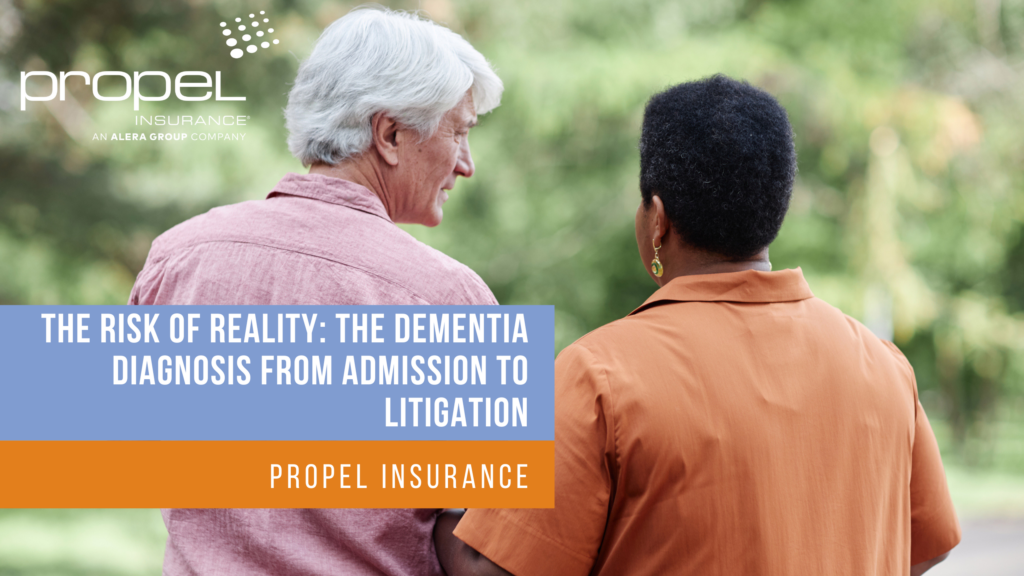Propel provides innovative insurance solutions to thousands of companies across the country. We make it our business to know your world inside and out.
Insights, Senior Care
The Risk of Reality: The Dementia Diagnosis from Admission to Litigation
It is common for most to be somewhat prepared and accepting of the eventual conclusion of life. Few, however, are prepared and accepting of the journey. This journey, and the associated retained risks, is the specialty of senior care.
For those who care for residents with mild cognitive impairment, a general dementia diagnosis or Alzheimer’s specific, we want to give thanks to you during the designated Mental Health Awareness Month of May. We also want to recognize and assist with mitigating the risk areas of the unique journey.
After an admission is completed the resident and the family have needs, wants and expectations, all which have to be recognized even if all cannot be met.
Event risk prevention and control plans should start with selected staff talent supported by a different type of training approach based on caveats of care and encounters which do not follow a typical or expected pattern. Staff trained appropriately and comfortable with scenarios of incidents may be more effective for all than numbers.
Your selected resources are:
The Risk of Reality: The Dementia Diagnosis from Admission to Litigation informational can accomplish a focused drive for understanding, open the door for needed conversations, and be the point of change at time of conflict. Most importantly, it can be used for education of staff, posing questions for critical thinking, and a gateway introduction and understanding for families. The illustrations selected, the timeline and sieve, are referenced throughout the informational.
The Progression Timeline offers checkpoints along the journey of dementia progression where most events occur highlighting the expected changes and the most frequent legal allegations.
The Risk Mitigation Sieve takes the main exposures and events and filters out many contributing factors which are often overlooked for discussion as contributing to many outcomes attributed to the care setting and the caregivers. It can provide an opportunity for what to consider for both conversations and documentation supporting some unavoidable outcomes.


